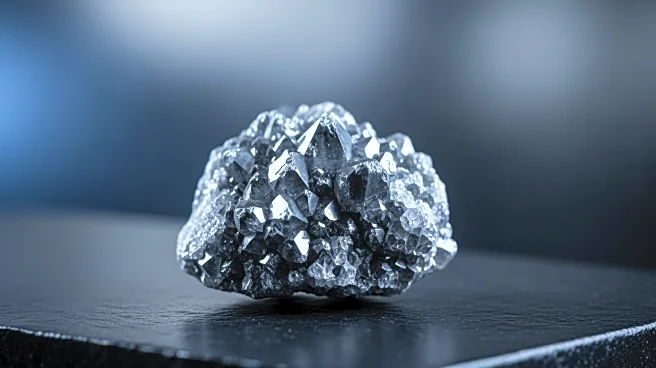What's Happening?
Japan's Trade Minister Ryosei Akazawa announced that there are currently no changes in China's export control measures on rare earths and other materials. This statement comes amid ongoing diplomatic tensions
between Japan and China, particularly over Taiwan. The rare earths market is crucial for various industries, including technology and manufacturing, and any changes in export controls could have significant implications. Akazawa's remarks aim to reassure stakeholders that the current situation remains stable, despite the broader geopolitical challenges.
Why It's Important?
Rare earths are essential components in many high-tech products, and any disruption in their supply could impact industries globally. Japan's reliance on rare earth imports from China makes it vulnerable to changes in export policies. The stability in export controls is crucial for maintaining production and innovation in sectors like electronics and renewable energy. The announcement reflects Japan's efforts to manage diplomatic relations with China while ensuring the continuity of critical supply chains.
What's Next?
Japan may continue to monitor the situation closely and engage in diplomatic efforts to maintain stable trade relations with China. The government might explore alternative sources for rare earths to reduce dependency on Chinese exports. Ongoing dialogue and negotiations could be pursued to address any potential changes in export controls and mitigate risks to industries reliant on these materials.
Beyond the Headlines
The situation highlights the strategic importance of rare earths in global trade and the potential for geopolitical tensions to impact supply chains. Japan's efforts to ensure stability in rare earth imports reflect broader concerns about resource security and the need for diversified sourcing strategies. The announcement also underscores the interconnectedness of trade and diplomacy, where economic considerations are closely tied to political relations.









